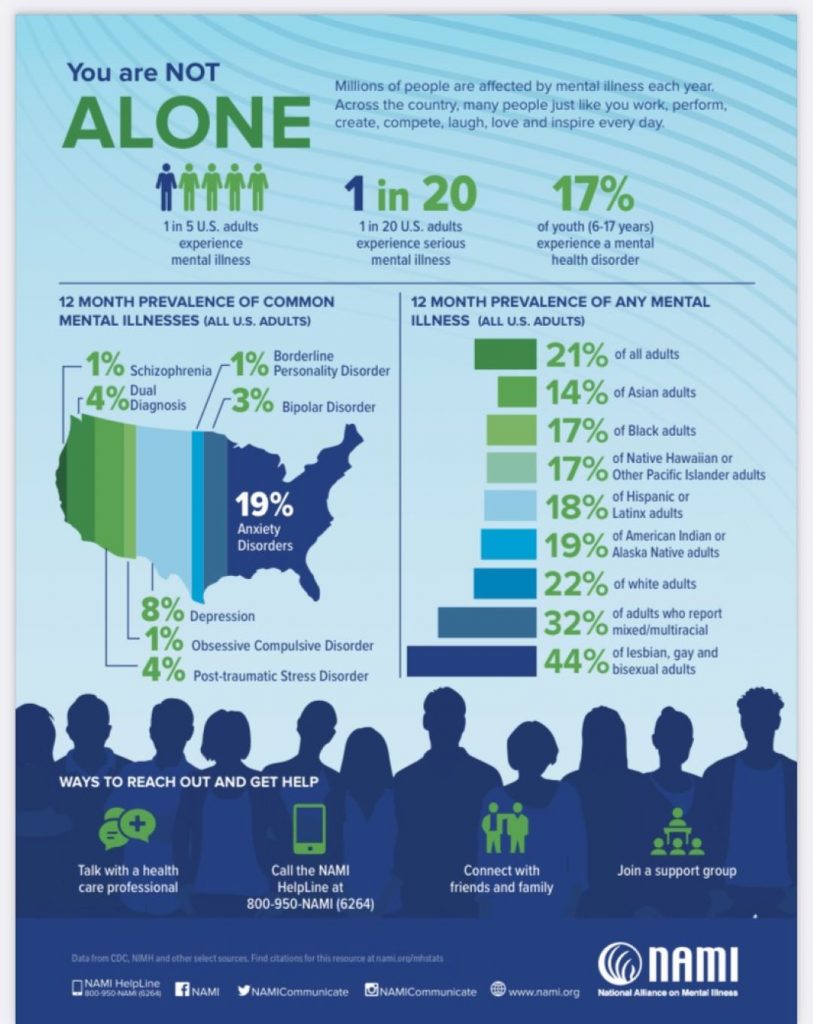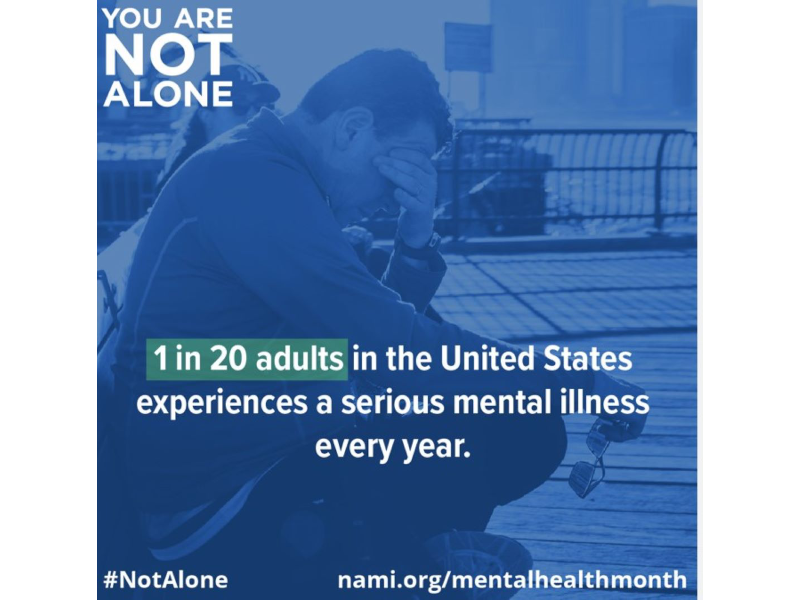More than a decade ago, Amanda Duffy checked herself into a hospital.
She knew something was wrong — not with her physical body, but with her emotional and mental well-being.
“I thought ‘I can’t do this by myself,’” said Duffy, who has actively worked on her mental health since. Her battles with anxiety and depression were related to a traumatic experience. Over the years, she’s talked to therapists, been on medication and finally found a sense of balance in her life.
May is national mental health month.
MORE: Insomnia, Depression and Anxiety Striking Healthcare Workers Amidst Pandemic
In the fall, Duffy started a Facebook group addressing self-care and mental health issues.
“When it comes to mental health, it’s important to know they are not the only ones struggling,” said Duffy, who often shares her own experiences in the group to let people know exactly that.
During the pandemic, that feeling of being alone has intensified for many; so much so that the National Alliance on Mental Illness (NAMI) adopted a theme of “You Are Not Alone” for its mental health month promotions.

“Over the last year, we’ve experienced unparalleled levels of grief, trauma, uncertainty and isolation, and while there is a light at the end of the tunnel, we have much work to do,” said Daniel H. Gillison Jr., CEO of NAMI., in a news release.
Locally, mental health care professionals have seen people dealing with anxiety and insomnia, according to Dr. Gregory Smith, medical director of the Aiken-Barnwell Mental Health Center in Aiken.
“People are tired. They are anxious. They don’t sleep, and they overthink things,” he said.
The isolation imposed through social distancing and other COVID-19 related guidelines continues to take a toll especially in certain age groups, he said.
“Isolation is really hard for teens and older people,” he said.
Teens rely on that social interaction among their peers. Older adults have been cut off from family and other supports, he said.
Overall, people tend to neglect their mental well-being.
According to NAMI, people wait an average of 11 years from the onset of chronic mental health problems until they seek help.
[adrotate banner=”23″]
“I was my own self-advocate — knowing I needed help,” Duffy said. “Not many people do that.”
Self-care is an important element to mental health wellness, according to NAMI and Smith.
Simple ways to take care of oneself include exercise, eating right and being out in nature.
Smith said that even during the pandemic, taking walks outside or doing something out-of-doors are a simple way to combat mental fatigue and anxiety. That combined with healthier eating habits can alleviate some stress and help improve the quality of sleep.
MORE: Augusta University Psychologist Provides Information on Suicide Prevention
For others, those simple things may not be enough. They may need to talk to a professional, and if someone is having suicidal thoughts, outside help is critical.
“Suicidal thoughts, much like mental health conditions, can affect anyone regardless of age, gender or background. In fact, suicide is often the result of an untreated mental health condition,” according to a news release from NAMI.
NAMI has a suicide hotline for anyone who needs someone to talk to. That number is (800) 273-TALK (8255) or text NAMI to 741-741 for a free, trained crisis counselor.
Charmain Z. Brackett is the Features Editor for The Augusta Press. Reach her at charmain@theaugustapress.com.
[adrotate banner=”48″]












